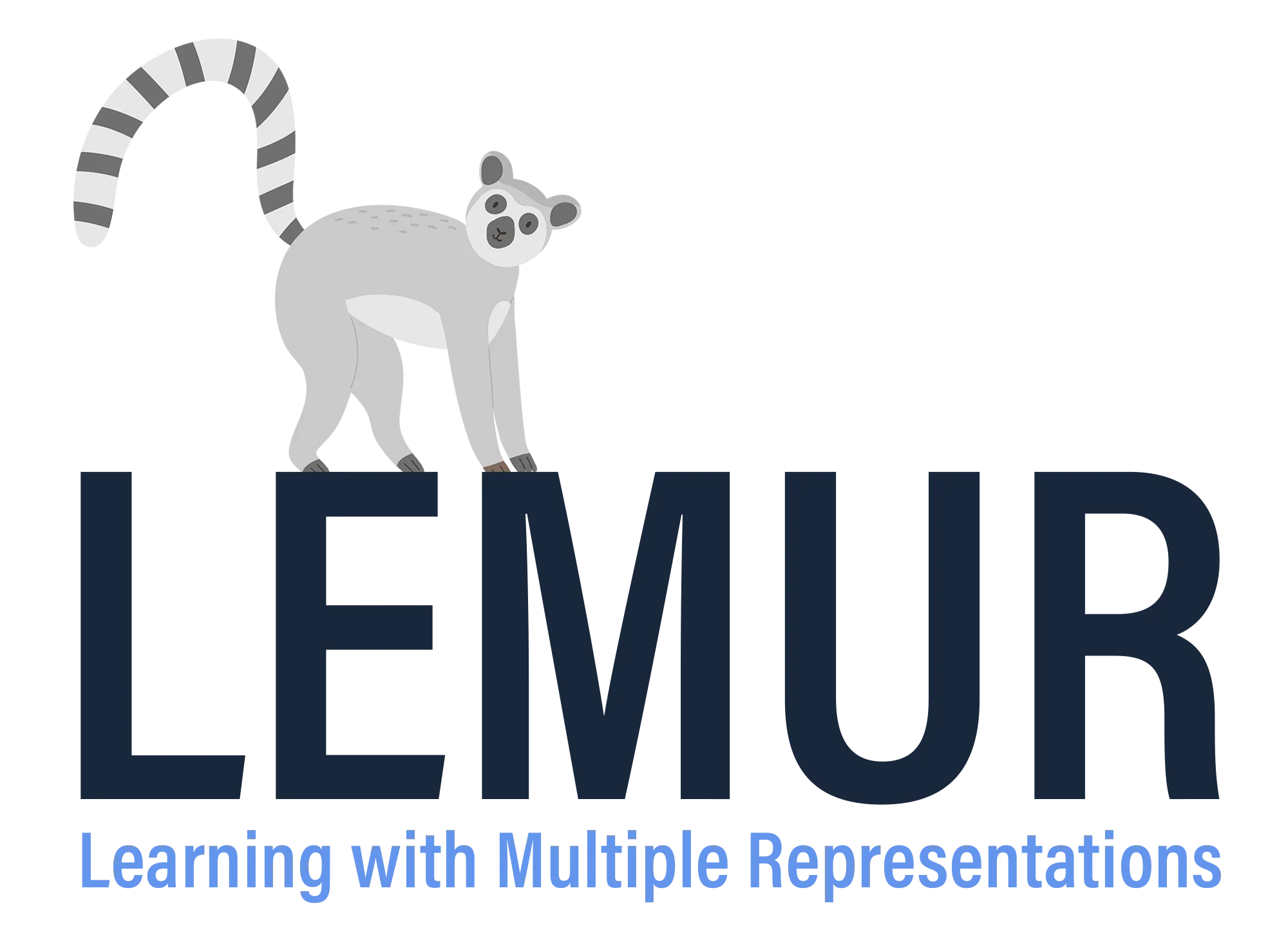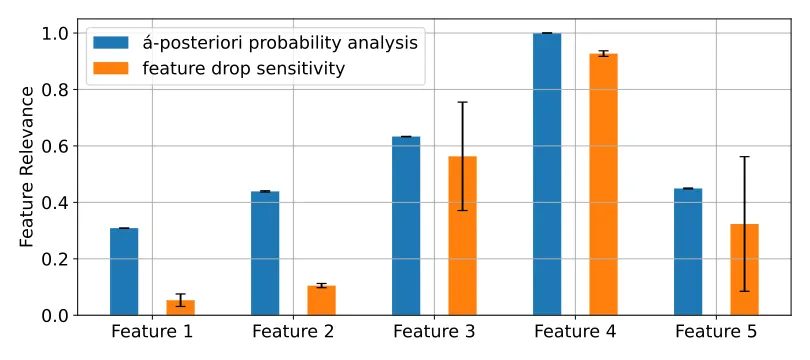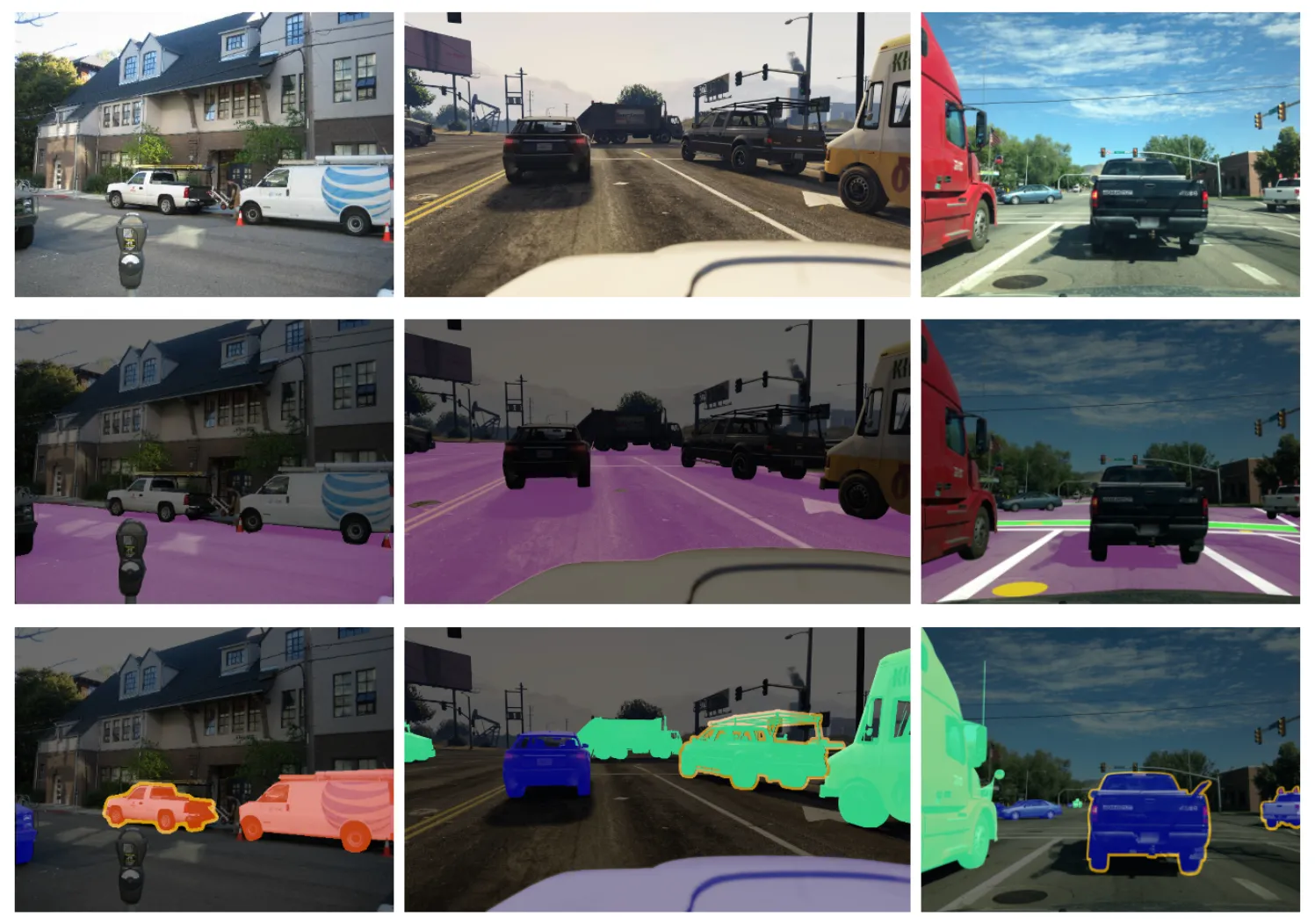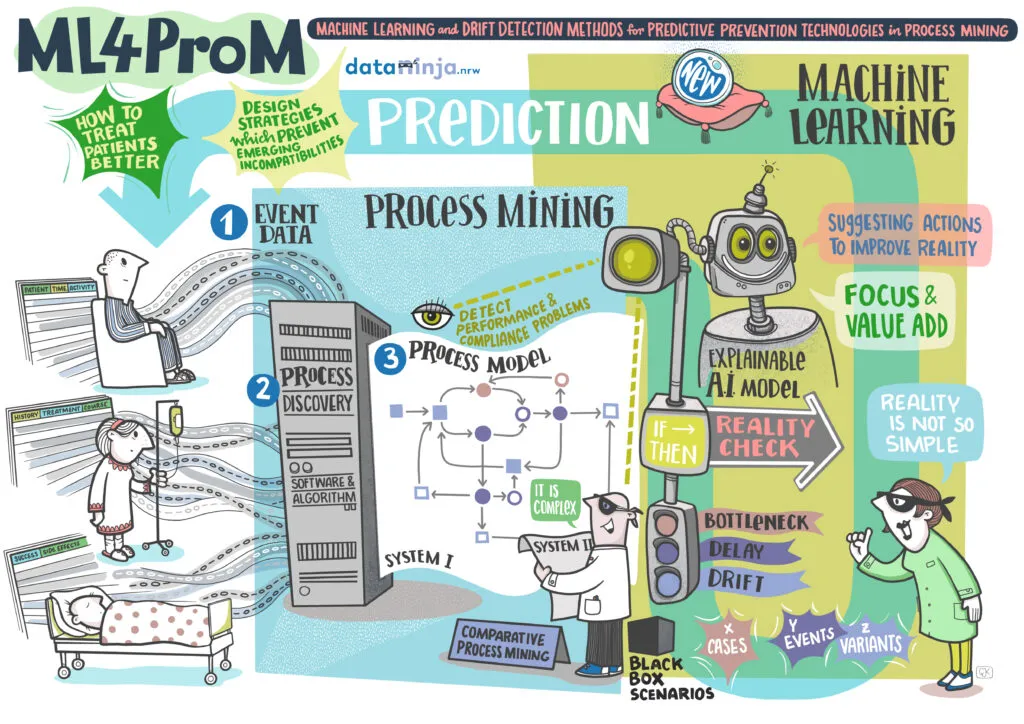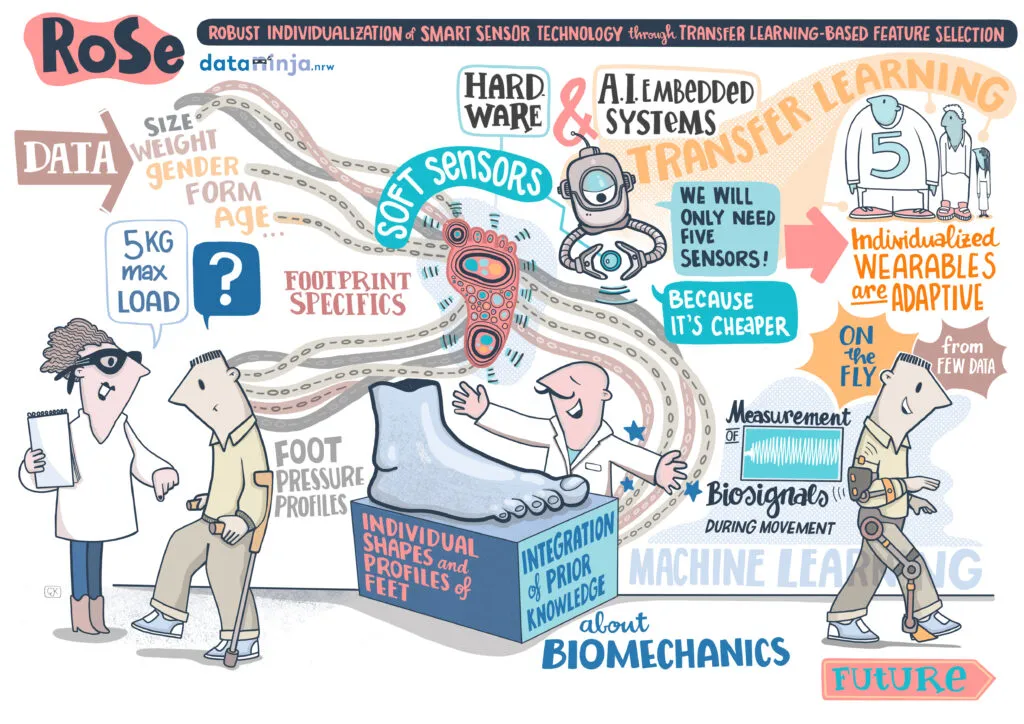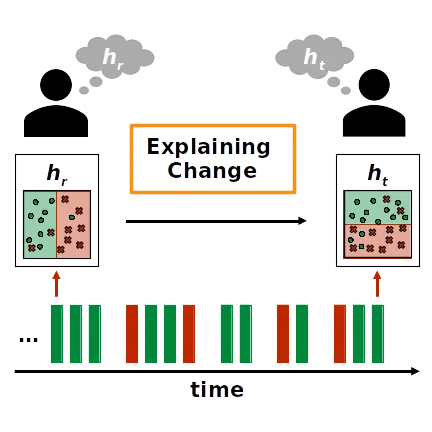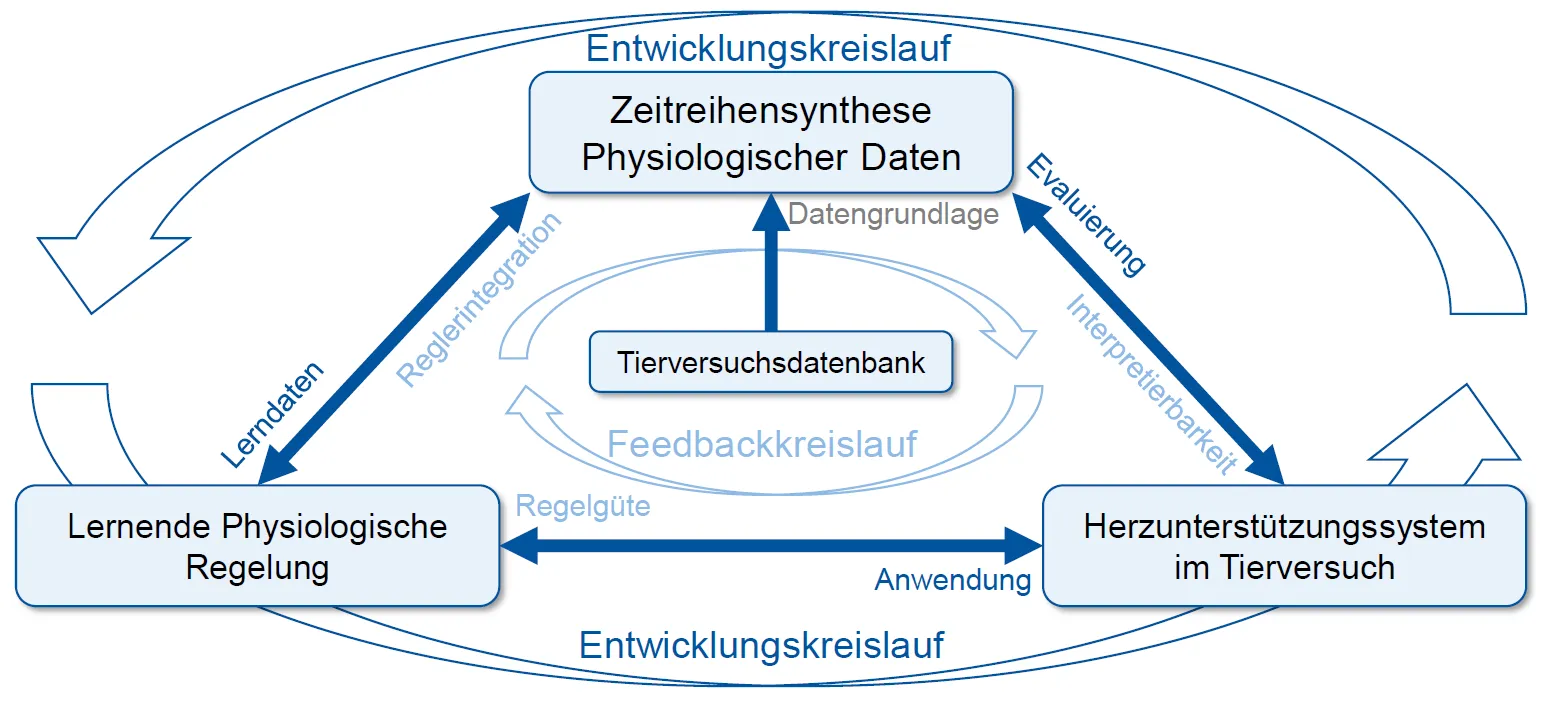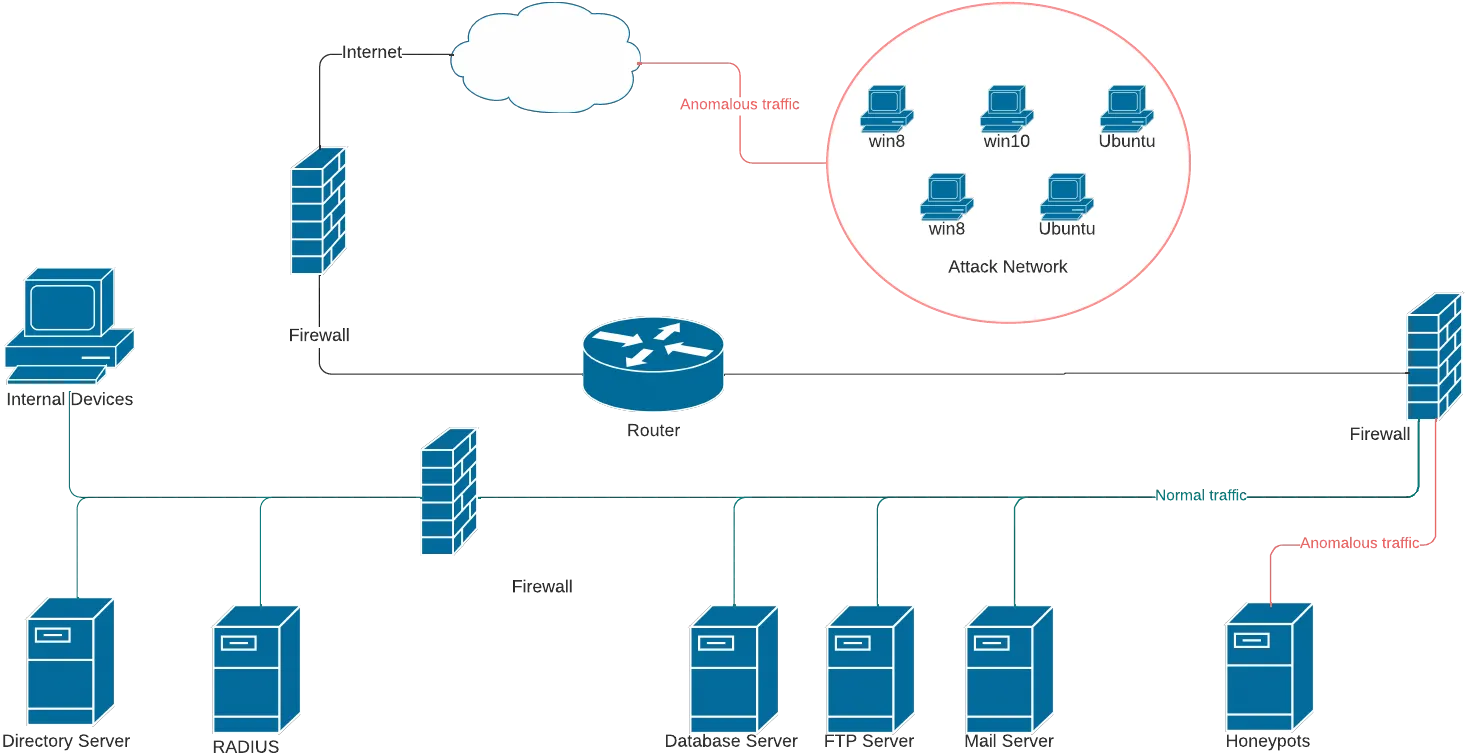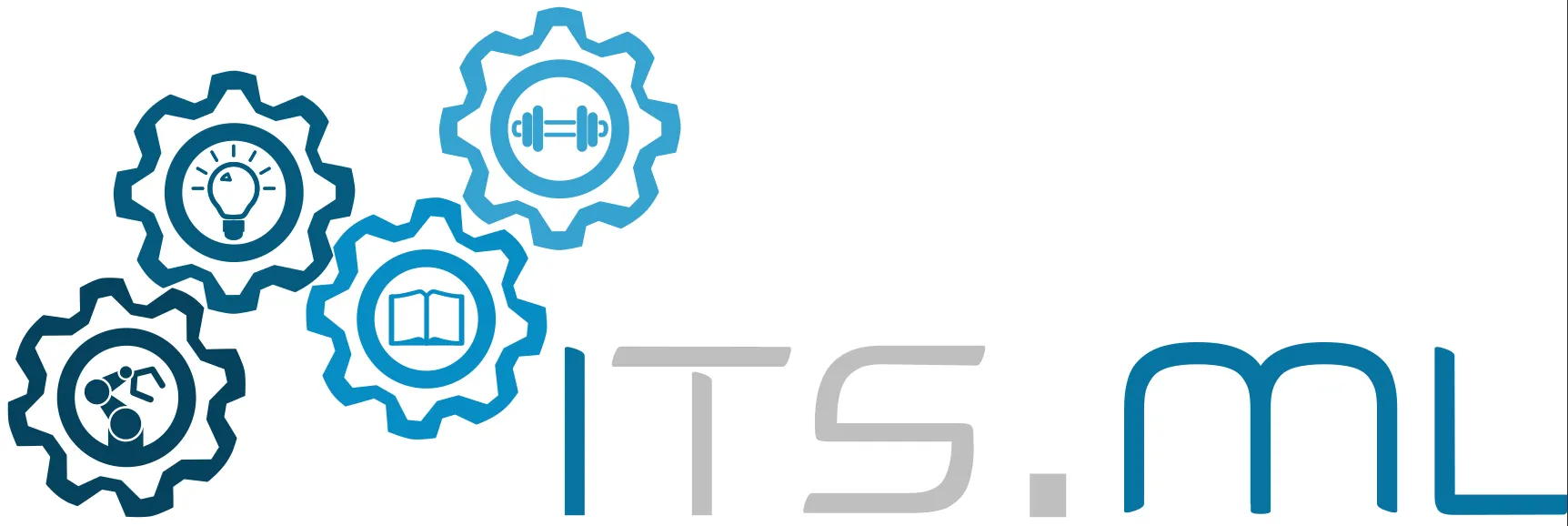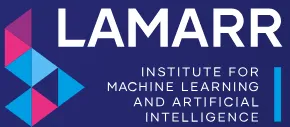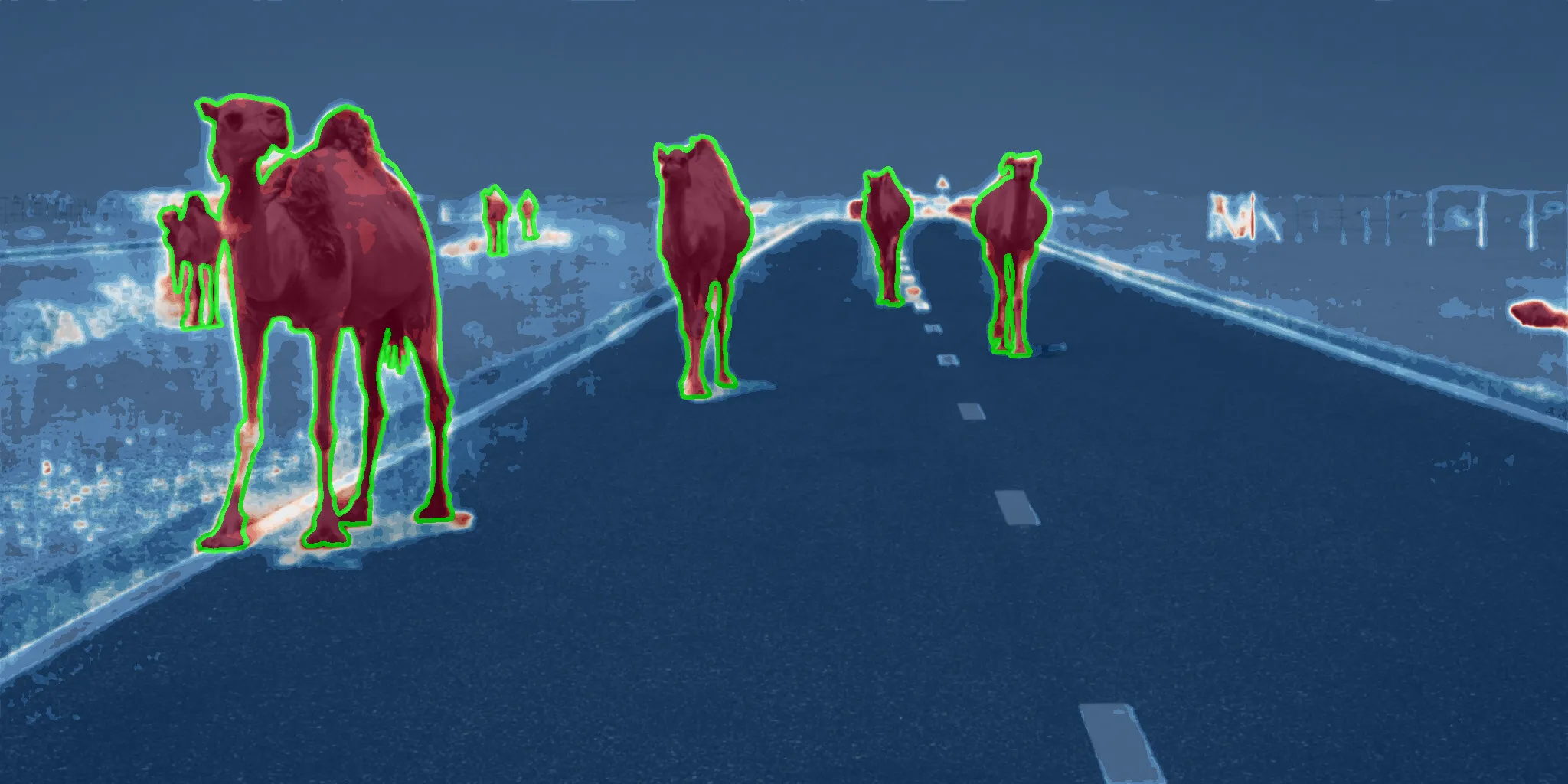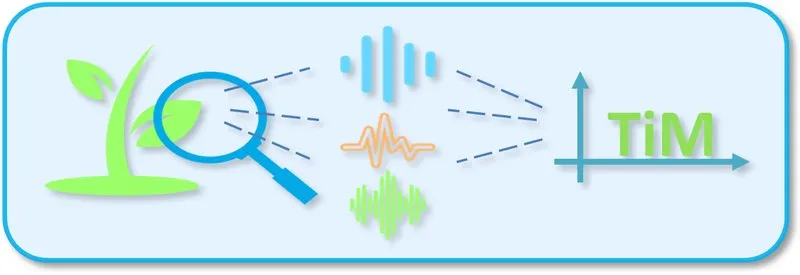Completed Projects
Riza Velioglu,
Barbara Hammer
Duration: 2021 - 2025
The project ML4ProM (“Machine Learning for Process Mining”) is part of the Dataninja research training group and it aims to leverage predictive machine learning techniques to improve current efforts in process mining field. The project intends to supplement retrospective analysis with predictive Machine Learning technologies in order to comprehend the processes better. It also aims to provide predictions to enrich the information provided by the process models. Furthermore, the project would also produce alternative solutions by discovering deviations from the process model as early as possible.
Project Website
Funding: Ministry of Culture and Science of the Federal State North Rhine-Westphalia
Markus Vieth,
Barbara Hammer
Duration: 2021 - 2025
The project RoSe (“Robust Individualization of Smart Sensor Technology through Transfer Learning Based Feature Selection”) is part of the Dataninja research training group and deals with the optimization of biosensor hardware and software. The hardware should be designed in such a way that the sensor is usable by many people, while it is customized for each user on the software side. Two example scenarios are considered: a novel shoe insole and a myoelectric arm orthosis.
Project Website
Funding: Ministry of Culture and Science of the Federal State North Rhine-Westphalia
Roel Visser,
Barbara Hammer
Duration: 2021 - 2025
The focus of this project is on crucial overarching properties of decisions and explanations. The aim is to investigate the important question of how a person’s critical attitude towards an AI system can be supported by fostering a healthy distrust in intelligent systems, and whether and how this attitude can be reinforced by means of explainable machine learning methods. This attitude is crucial for persons to act mindfully and be empowered to shape AI. An attitude of healthy distrust towards intelligent systems and their outputs is needed in order to prevent either disuse (e.g. a complete unwillingness to use the system) or overtrusting (e.g. blind trust) of an intelligent system. By fostering an attitude of healthy distrust a person should be able to appropriately rely on intelligent systems in potentially high-risk domains such as medicine.
This project benefits from interdisciplinary expertise in experimental studies and formal modeling as well as from being able to use cases from the domain of machine learning. By combining expertise from the fields of Machine Learning and Psychology the researchers will be able to investigate the psychological underpinnings of user trust and how healthy distrust can be fostered by and in the interaction with intelligent systems, ML, and XAI.
Project Website
Funding: Deutsche Forschungsgemeinschaft (DFG, German Research Foundation): TRR 318/1 2021 – 438445824
Fabian Fumagalli,
Barbara Hammer
Duration: 2021 - 2025
Today, machine learning is commonly used in dynamic environments such as social networks, logistics, transportation, retail, finance, and healthcare, where new data is continuously being generated. In order to respond to possible changes in the underlying processes and to ensure that the models that have been learned continue to function reliably, they must be adapted on a continuous basis. These changes, like the model itself, should be kept transparent by providing clear explanations for users. For this, application-specific needs must be taken into account. The researchers working on Project C03 in the TRR318 are considering how and why different types of models change from a theoretical-mathematical perspective. Their goal is to develop algorithms that efficiently and reliably detect changes in models and provide intuitive explanations to users.
Project Website
Funding: Deutsche Forschungsgemeinschaft (DFG, German Research Foundation): TRR 318/1 2021 – 438445824
André Artelt,
Barbara Hammer
Duration: 2019 - 2023
IMPACT “Implications of conversing with intelligent machines in everyday life for people´s beliefs about algorithms, their communication behavior and their relationship building” is an interdisciplinary project where groups from psychology, ethics, legal science and computer science study the interaction and communication of people with smart assistants. The project focuses on transparency, communication and relationship building.
Project Website
Funding: VW Foundation
Johannes Kummert,
Robert Feldhans,
Alexander Schulz,
Barbara Hammer
Duration: 2021 - 2024
The central scientific question of the LeRntVAD project addresses the intuitive access to generative machine learning (ML) models. For this purpose, a synthetic simulation model will be created for the cardiovascular system.
This model will then be used in the application to design an artificial intelligence (AI)-based controller for left ventricular assist devices (VADs). An AI controller extends the range of existing classical controllers by eliminating the need for invasive measurement data.
In this project, we are collaborating with the Institute of Control Engineering at RWTH Aachen University and the University Hospital Aachen.
Funding: German Federal Ministry of Education and Research (BMBF) within the funding initiative "Erzeugung von synthetischen Daten für Künstliche Intelligenz"
Sarah Schröder,
Philip Kenneweg,
Alexander Schulz,
Barbara Hammer
Duration: 2020 - 2023
The AI Marketplace creates a unique ecosystem that brings together AI experts, vendors and users to leverage the full potential of artificial intelligence. The AI Marketplace is a platform that provides a space for secure data exchange and data sovereignty in addition to an intelligent matching of AI service providers and companies.
20 project partners work together in this project, consisting of research institutions and companies and the consortium is headed by the Heinz Nixdorf Institute.
Project Website
Funding: German Federal Ministry of Economic Affairs and Energy (BMWi) within the “Innovationswettbewerb Künstliche Intelligenz"
Aleksei Liuliakov,
Barbara Hammer
Duration: 2020 - 2023
As digitalization expands, Industrial Control Systems (ICS) face increasing cybersecurity threats. This project aim to addresses this by developing a self-learning security solution for ICS. Utilizing machine learning, the system learns “normal” operational patterns, detecting anomalies indicative of cyberattacks. Additionally, pattern recognition techniques identify communication data threats. An important aspect of the approach is to making machine learning’s decision-making transparent and comprehensible, empowering users with meaningful insights. In this project, we are collaborating with the Fraunhofer (IOSB-INA) and the Rhebo GmbH.
Project Website
Funding: German Federal Ministry of Education and Research (BMBF)
Ulrike Kuhl,
André Artelt,
Alexander Schulz,
Malte Schilling,
Johannes Kummert,
Barbara Hammer
Duration: 2019 - 2022
The aim of ITS.ML is to make machine learning (ML) for intelligent technical systems (ITS) available in the long term. A particular focus is on establishing ML as a service for small and medium-sized enterprises (SMEs).
ITS.ML combines theoretical and practical competencies of proven research institutions for ML. Researchers from the University of Bielefeld, the University of Paderborn, the Technical University of Ostwestfalen-Lippe and the University of Applied Sciences Bielefeld have joined forces to provide ML approaches to practitioners in industry.
See our project’s webpage for more information about scope and results:
Our FIT.ML platform provides detailed descriptions of applied examples and hands-on reference implementations of our ML innovations: https://its-ml.de/index.php/fit-ml/
Project Website
Funding: German Federal Ministry of Education and Research (BMBF), German Aerospace Center (DLR)
Christian Internó,
Markus Olhofer,
Barbara Hammer
Duration: 2023 - 2025
Federated learning revolutionizes machine learning by enabling collaborative training across decentralized nodes, without centralized data aggregation. Beyond privacy, it enhances system adaptability, robustness, security, and collaboration. This research leverages federated learning to optimize global systems, addressing challenges and fostering innovation in real-world distributed scenarios. With a focus on adaptability, robustness, and collaboration, the project redefines machine learning deployment in various sensitive contexts, including global energy distribution, personalized mobility, drone transportation within the Honda Research Institute EU (HRI-EU).
Funding: Honda Research Institute EU (HRI-EU)
André Artelt,
Barbara Hammer
Duration: 2023 - 2025
The Lamarr fellowship on Trustworthy AI (TrustAI) was awarded to Barbara Hammer in April 2023.
The fellowship aims to support research on trustworthy artificial intelligence for spatial data to meet the challenges of climate change and drinking water supply.
Funding: Ministry of Culture and Science of the Federal State North Rhine-Westphalia
Robin Kien-Wei Chan
Duration: 2022 - 2024
State-of-the-art deep neural networks (DNNs) are usually trained to operate on a pre-defined and closed set of categories. Thus, they are ill-equipped when exposed to examples of a novel and unknown category. In real-world applications, to which DNNs are envisioned to be deployed to, the missing capability of handling such so-called “out-of-distribution” (OoD) examples could potentially lead to unwanted consequences. This becomes particularly crucial in high-stake applications. In this project, we tackle the problem of OoD detection in semantic segmentation, which is a key perception component in many existing vision systems based on machine learning. To this end, we are going to employ generative models to evaluate the likelihood of latent representations extracted from internal layers of the encoder of semantic segmentation DNNs. The intuition is that the likelihood measures how well observed features fit to those already known from training. We investigate and develop multiple types of generative models, paying special attention to the challenge of handling very high dimensional input data.
Funding: Ministry of Culture and Science of the Federal State North Rhine-Westphalia within KI-Starter
Andrea Castellani,
Jonathan Jakob,
Sebastian Schmitt,
Martina Hasenjäger,
Barbara Hammer
Duration: 2021 - 2023
Intelligent monitoring systems are gaining more and more relevance with many possible applications, from industrial settings to assistive devices for humans. For many possible functions, prediction is one of the basic capabilities to provide the right information at the right time. Machine Learning models should be able to cope with concept drift in streaming non-stationary data. The aim of this project is to extend existing learning methods towards more heterogeneous and challenging learning scenarios. A particular focus of this project is to apply advanced Machine Learning research to real-world problems within the Honda Research Institute EU (HRI-EU) for example smart energy monitoring systems or models for exoskeleton control.
Funding: Honda Research Institute EU (HRI-EU)
Valerie Vaquet,
Barbara Hammer
Duration: 2021 - 2023
One core issue when applying machine learning to sensor hardware is a lack in inter-operability. The goal of the TiM-project is the investigation of methods enabling transfer between different types of sensor hardware. The focus lies on hyperspectral and multispectral sensor data.
Project Website
Funding: German Federal Ministry of Education and Research (BMBF)



